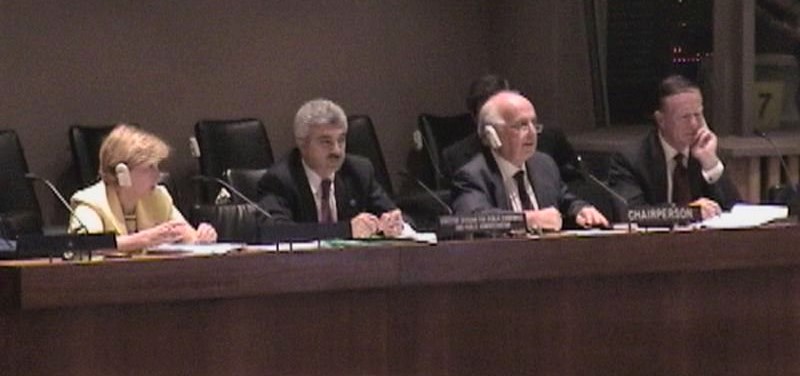The Committee of Experts on Public Administration held its first session at the United Nations in New York from 22 to 26 July 2002. Its theme was “Enhancing the capacity of public administration to implement the UN Millennium Declaration.”
Report
Arabic | Chinese | English | French | Russian | Spanish
Subtopics | Major recommendations/conclusions |
|
Enhancing the capacity of public administration to implement the UN Millennium Declaration | The Council was requested to consider authorizing annual meetings of the Committee in order to follow the progress of Member States and the United Nations in enhancing the capacity of public administration to achieve the Millennium Development Goals. Upon a request by the Council, the Committee decided to establish a subcommittee to set its agendas and prepare its meetings. Other subcommittees, whether established by function or region, could also help to conduct the work of the Committee. Member States should: - explore the concept of public sector learning organizations;
- rely on conceptual work to support progress in the sectoral areas responsible for the issues highlighted in the Millennium Declaration;
- define a road map for implementation of measures regarding income poverty, hunger, access to water and sanitation, slums, health, education, employment, gender and environment;
- rely on innovations and horizontal processes, as exemplified by public sector learning organizations;
- better define the role of the state as enabler and as user of knowledge and technology in order to support and encourage innovation throughout the public administration and the society as a whole; and
- design and implement effective decentralization policies and programmes (financial and administrative) and build the capacity of governance institutions at the central, subnational and local levels to accomplish the MDGs.
The Secretariat should: - identify the critical factors that could guide Member States’ decisions on the proper balance between centralized and decentralized responsibilities in fiscal and financial administration;
- show how public administration reforms could best increase effectiveness and efficiency, reduce the cost of government and release resources to meet higher societal needs;
- relate all initiatives planned or undertaken in the area of state governance and public administration in Africa with the work of the New Partnership for Africa’s Development (NEPAD), as well as the G-8 Africa Action Plan, in order to ensure maximum synergy and to be supportive of the partnership concept advocated by NEPAD; and
- give priority to the needs of Africa through its technical assistance activities.
|
 Bienvenidos a las Naciones Unidas
Bienvenidos a las Naciones Unidas
